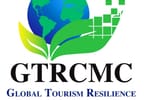As one of the most thriving economic activities, tourism is well placed to contribute to indigenous people in improving their livelihoods. If managed responsibly and sustainably, indigenous tourism can spur cultural interaction and revival, bolster employment, alleviate poverty, curb rural flight migration, empower women and youth, encourage product diversification, and nurture a sense of pride among indigenous people. However, this type of tourism also raises a series of ethical, social, economic and human rights-related challenges that need to be addressed by the sector.
These convictions are upheld by the Larrakia Declaration adopted by the World Indigenous Tourism Alliance in 2012, which enjoys the support of UNWTO as a landmark document for the empowerment of indigenous peoples through tourism. With the Larrakia Declaration as a backdrop, this UNWTO panel will discuss equitable partnerships between indigenous and non-indigenous stakeholders that can benefit the communities on the long-run and will also suggest some guidance in this regard.
Furthermore, the event will establish linkages between the International Year of Sustainable Tourism for Development, championed by the United Nations, and indigenous communities, given their ancestral knowledge of nature and methods of sustainable management of resources that they depend on. The panel will finally showcase good practices which have provided indigenous people with concrete entrepreneurial opportunities and economic empowerment.
WHAT TO TAKE AWAY FROM THIS ARTICLE:
- These convictions are upheld by the Larrakia Declaration adopted by the World Indigenous Tourism Alliance in 2012, which enjoys the support of UNWTO as a landmark document for the empowerment of indigenous peoples through tourism.
- With the Larrakia Declaration as a backdrop, this UNWTO panel will discuss equitable partnerships between indigenous and non-indigenous stakeholders that can benefit the communities on the long-run and will also suggest some guidance in this regard.
- Furthermore, the event will establish linkages between the International Year of Sustainable Tourism for Development, championed by the United Nations, and indigenous communities, given their ancestral knowledge of nature and methods of sustainable management of resources that they depend on.






















